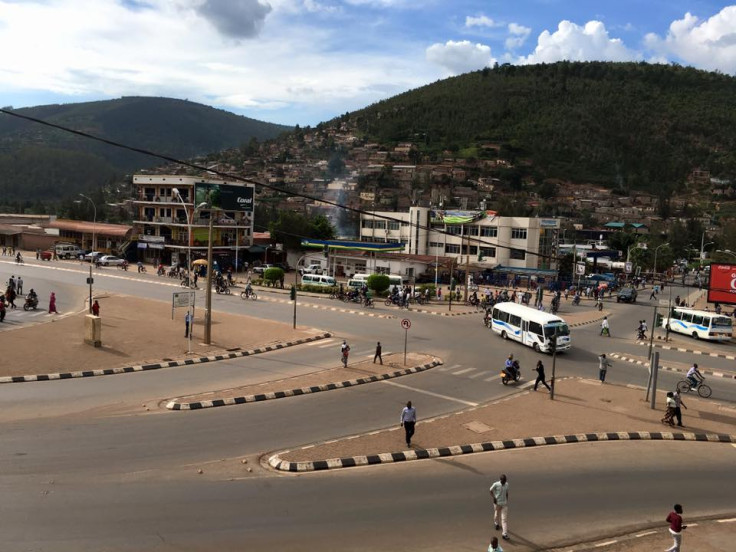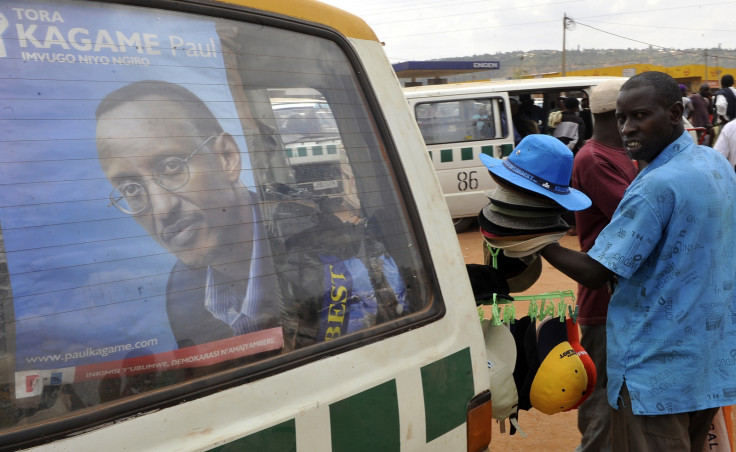How Rwanda seeks to promote stability and security by helping vendors off the streets
Capital Kigali launches a new modern market to accommodate 3,200 – mostly female – street vendors.

A new market to help vendors get off the streets launched this weekend in the Rwandan capital. Kigali, has set the tone to promote security, welfare of the people and fast-track national development, according to the Rwandan government.
In response to the 1994 devastating genocide in Rwanda – which left between 800,000 and 1 million dead, and exceptional levels of urban population growth when refugees returned in their hundreds of thousands – the government focused on restoring security and order in Kigali, which became the nation's centre for development and aspiration.
Celebrating the 22nd Liberation Day on 4 July 2016, President Paul Kagame said Rwanda still has to strive for total liberation, and the new struggle for liberation would be about fighting poverty, boosting morale, changing mindsets and rebuilding the nation.
In May, the government announced it would eject street vendors from Kigali in a bid to eliminate street vending – a hallmark of sprawling African cities – to make the city "cleaner".
Vendors opposed the plan saying it would deny them income but the government asked them to form registered co-operatives or find formal work.
However, on 3 September, the city of Kigali launched a new modern market that will accommodate an estimated 3,200 former street vendors in Nyabugogo, Nyarugenge District. According to local authorities, there were an estimated 8,300 street hawkers in Kigali – 5,000 of whom were trading in Nyarugenge.
One of 12 already constructed in Kigali's three administrative districts – Gasabo, Kicukiro, and Nyarugenge – the market will accommodate traders selling commodities such as groceries and clothing among other household utilities.
Mini market 'empowers women' in Kigali
During the market's inauguration, the Minister of Gender and Family Promotion, Diane Gashumba, said the occupants of the Rwf192m (£180,000, US$239,000) would be mostly women. All traders are exempted from paying taxes and rent on the stalls for a whole year – costs estimated at Rwf410m by the authorities.
The Nyabugogo Modern Market will accommodate 3200 former street vendors from @CityofKigali. pic.twitter.com/SSW0xf1ipf
— Rwanda Police (@Rwandapolice) September 3, 2016
"This market comes as a solution to security issues that were caused or likely to be caused by street hawking like public disorder," Gashumba said.
"There is no way your business can grow when you are on the streets... in this new market you are all credit-worthy which is a realisation of President Paul Kagame strategy to have at least 50% women have access to financial facilitation by 2017," she told the traders.

Highlighting the ongoing security campaign championed by the head of state, the minister said the market would empower women who she described as strong partners to the security services.
"Remember that maintaining security isn't the responsibility of the police and other security agencies alone, it starts with you," she said.
This was echoed by the Inspector General of Police (IGP) Emmanuel Gasana who stated: "Street vending was posing security challenges, disorder and an obstacle to the development in our city, which we must be jointly stop."
The market was built by the city of Kigali in tandem with other stakeholders including government ministries, security organs and the private sector.
Two decades after the devastating genocide, the the International Monetary Fund (IMF) describes Rwanda as a positive example for countries striving to exit instability.
© Copyright IBTimes 2025. All rights reserved.






















